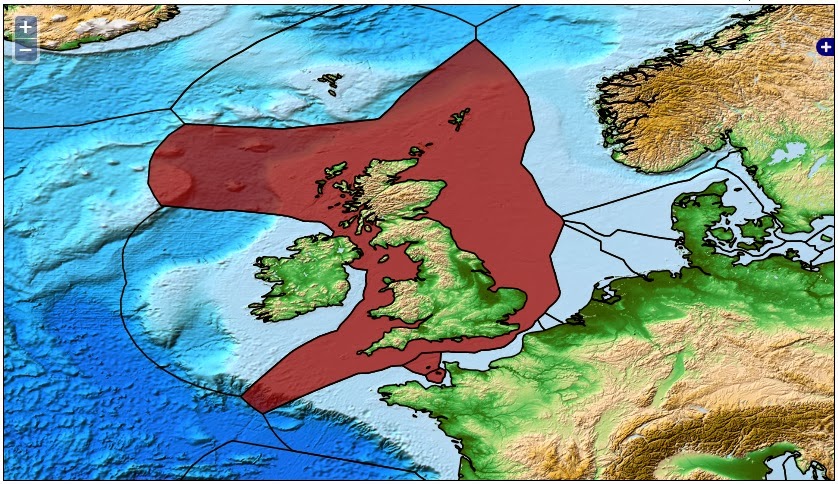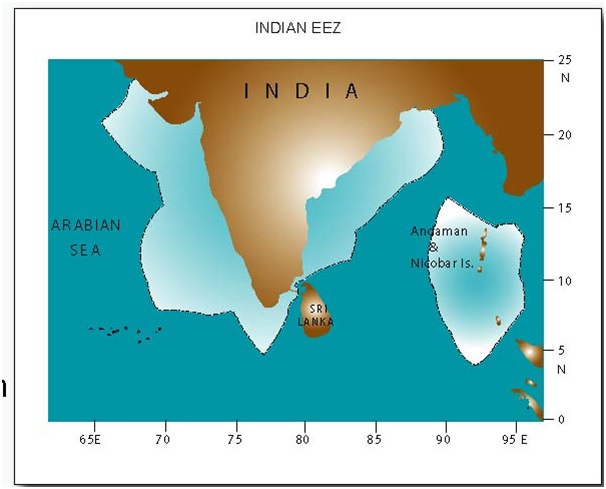Introduction Exclusive Economic Zone (EEZ) is comparatively a concept of recent origin. The concept of EEZ was initiated by Kenya in 1972 at the Geneva session of the UN Committee on Peaceful uses of Sea-bed and Ocean Floor Beyond the Limits of National Jurisdiction. The EEZ finally found a place in the Convention on the Law of the… Read More »

Introduction Exclusive Economic Zone (EEZ) is comparatively a concept of recent origin. The concept of EEZ was initiated by Kenya in 1972 at the Geneva session of the UN Committee on Peaceful uses of Sea-bed and Ocean Floor Beyond the Limits of National Jurisdiction. The EEZ finally found a place in the Convention on the Law of the Sea of 1982. Since then, it has become a generally accepted institution of the law of the sea. In Tunisia v. Libya, [ICJ Reports 1982 p. 18] it was stated that...
Introduction
Exclusive Economic Zone (EEZ) is comparatively a concept of recent origin. The concept of EEZ was initiated by Kenya in 1972 at the Geneva session of the UN Committee on Peaceful uses of Sea-bed and Ocean Floor Beyond the Limits of National Jurisdiction. The EEZ finally found a place in the Convention on the Law of the Sea of 1982. Since then, it has become a generally accepted institution of the law of the sea. In Tunisia v. Libya, [ICJ Reports 1982 p. 18] it was stated that the concept of EEZ can be regarded as a part of customary laws.
The zone, in fact, has its roots in the concept of the Exclusive Fishing Zone and the doctrine of the continental shelf. It was actuated by the developments that had taken place after the Second World War when many nations (particularly Latin American) started proclaiming 200 miles as their fishery zone. Such claims were motivated by a concern for the conservation of living sea resources and other considerations.
Meaning
Article 55 of the United Nations Convention on the Law of the Sea – Specific legal regime of the exclusive economic zone
The exclusive economic zone is an area beyond and adjacent to the territorial sea, subject to the specific legal regime established in this Part, under which the rights and jurisdiction of the coastal State and the rights and freedoms of other States are governed by the relevant provisions of this Convention.
It extends up to 200 nautical miles (equivalent to 370.4 km) from the baselines from which the breadth of the territorial sea is measured. [Article 57] The zone is an intermediate area between the high seas and the territorial sea with a distinct regime of its own which a State can specifically claim. The zone comprises the area which was previously part of the high seas and is not under the sovereignty of the coastal State.
Though the Convention refrains from describing EEZ as a part of the high seas, other State generally continues to exercise the freedoms of the high seas in the EEZ, in particular, freedoms of navigation and overflight, lying of submarine cables and pipelines and other internationally lawful uses of the sea related to these freedoms. But the Convention does not specify whether foreign warships, which enjoy the freedom of navigation through EEZ, can conduct naval exercises in the EEZ as they can on high seas.
Rights of the Coastal States over EEZ
In the EEZ, the Coastal States have ‘sovereign rights’ for the purpose of exploring and exploiting, conserving and managing the natural resources, living and non-living resources of the waters superjacent to the sea-bed and its subsoil.
Article 56 of the United Nations Convention on the Law of the Sea – Rights, jurisdiction and duties of the coastal State in the exclusive economic zone
- In the exclusive economic zone, the coastal State has:
(a) sovereign rights for the purpose of exploring and exploiting, conserving and managing the natural resources, whether living or non-living, of the waters superjacent to the seabed and of the seabed and its subsoil, and with regard to other activities for the economic exploitation and exploration of the zone, such as the production of energy from the water, currents and winds;
(b) jurisdiction as provided for in the relevant provisions of this Convention with regard to: (i) the establishment and use of artificial islands, installations and structures;(ii) marine scientific research; (iii) the protection and preservation of the marine environment;
(c) other rights and duties provided for in this Convention. - In exercising its rights and performing its duties under this Convention in the exclusive economic zone, the coastal State shall have due regard to the rights and duties of other States and shall act in a manner compatible with the provisions of this Convention.
- The rights set out in this article with respect to the seabed and subsoil shall be exercised in accordance with Part VI.
Rights of Other States over EEZ
Article 56, Para 2 of the Convention of 1982 clearly lays down that the coastal states shall give due regard to the rights and duties of other States while exercising their rights in the EEZ.
Any conflict on the unregulated uses of the EEZ between a coastal State and other States should be resolved on the basis of equity and in the light of all the relevant circumstances. The delimitation of the EEZ between States with opposite or adjacent coasts is to be effected ‘by agreement on the basis of international law in order to achieve an equitable solution’. If no agreement can be reached within a reasonable time, the States concerned may resort to the procedures provided in the Convention.
Article 58 of the United Nations Convention on the Law of the Sea – Rights and duties of other States in the exclusive economic zone
- In the exclusive economic zone, all States, whether coastal or land-locked, enjoy, subject to the relevant provisions of this Convention, the freedoms referred to in article 87 of navigation and overflight and of the laying of submarine cables and pipelines, and other internationally lawful uses of the sea related to these freedoms, such as those associated with the operation of ships, aircraft and submarine cables and pipelines, and compatible with the other provisions of this Convention.
- Articles 88 to 115 and other pertinent rules of international law apply to the exclusive economic zone in so far as they are not incompatible with this Part.
- In exercising their rights and performing their duties under this Convention in the exclusive economic zone, States shall have due regard to the rights and duties of the coastal State and shall comply with the laws and regulations adopted by the coastal State in accordance with the provisions of this Convention and other rules of international law in so far as they are not incompatible with this Part.
Indian Position on Exclusive Economic Zone
Section 7 of the Maritime Zones Act, in India, is in compliance with the 1982 convention, which prescribes 200 nautical miles (equivalent to 370.4 km) as the limit of EEZ. The limit may be altered by the Central Government, giving due regard to International Law and State practice, through a notification in the Official Gazette to this effect. The notification should have the approval of both the House of Parliament before issuance.
No person, including a foreign government, can explore or exploit this area without an agreement with the Central Government or an authority granted by the Central Government. This provision, however, shall not apply to fishing by an Indian citizen.
The Central Government, by notification, declares any area as a designated area and makes laws with respect and also for the protection of the marine environment, or customs or other fiscal matters in relation to such designated area. While declaring an area of the EEZ a designated area, the government will ensure freedom of navigation, by taking into account the interests of India. The government may extend any law, imposing restrictions and modifications, temporarily on the EEZ or part thereof, and may make any provision for the enforcement of such law.
References
- Dr. H.O. Agarwal, International Law, 21st Edition, 2016
- http://nbaindia.org
- http://www.un.org

Mayank Shekhar
Mayank is an alumnus of the prestigious Faculty of Law, Delhi University. Under his leadership, Legal Bites has been researching and developing resources through blogging, educational resources, competitions, and seminars.

